
The Vibrant Heart of Surabaya: Wonokromo
Wonokromo is a bustling neighbourhood located in the southern part of Surabaya, Indonesia's second-largest city. This dynamic area is rich in history, culture, and modern attractions, making it an irresistible destination for tourists exploring Surabaya. The blend of old-world charm and contemporary allure makes Wonokromo a unique place to visit. Wonokromo is home to one of Surabaya's most famous landmarks, the Surabaya Zoo. Established in 1916, it is one of the oldest and largest zoos in Southeast Asia, housing a vast array of animals and offering an educational experience for visitors of all ages. Just a short distance away is the Royal Plaza, a modern shopping mall where you can find everything from local crafts to international brands, along with a variety of dining options to suit all tastes. The neighbourhood is also known for its vibrant street markets, where you can immerse yourself in the local culture. Pasar Wonokromo is a bustling traditional market offering a wide range of goods, including fresh produce, textiles, and souvenirs. The aroma of Indonesian street food wafts through the air, inviting you to sample dishes like sate, nasi goreng, and various local snacks. Wonokromo's rich cultural heritage is evident in its architecture and religious sites. The Al-Akbar Mosque, also known as the Grand Mosque of Surabaya, is a must-visit. This architectural marvel is one of the largest mosques in Indonesia and offers stunning views of the city from its observation deck. Additionally, the neighbourhood boasts several colonial-era buildings, providing a glimpse into Surabaya's historical past.
Local tips in Wonokromo
- Visit Surabaya Zoo early in the morning to avoid crowds and catch the animals at their most active.
- Explore Pasar Wonokromo for unique souvenirs and enjoy local street food delicacies.
- Take a trip to the observation deck of the Al-Akbar Mosque for panoramic views of Surabaya.
- Use local transportation options like becaks (cycle rickshaws) for a more authentic experience.
The Vibrant Heart of Surabaya: Wonokromo
Wonokromo is a bustling neighbourhood located in the southern part of Surabaya, Indonesia's second-largest city. This dynamic area is rich in history, culture, and modern attractions, making it an irresistible destination for tourists exploring Surabaya. The blend of old-world charm and contemporary allure makes Wonokromo a unique place to visit. Wonokromo is home to one of Surabaya's most famous landmarks, the Surabaya Zoo. Established in 1916, it is one of the oldest and largest zoos in Southeast Asia, housing a vast array of animals and offering an educational experience for visitors of all ages. Just a short distance away is the Royal Plaza, a modern shopping mall where you can find everything from local crafts to international brands, along with a variety of dining options to suit all tastes. The neighbourhood is also known for its vibrant street markets, where you can immerse yourself in the local culture. Pasar Wonokromo is a bustling traditional market offering a wide range of goods, including fresh produce, textiles, and souvenirs. The aroma of Indonesian street food wafts through the air, inviting you to sample dishes like sate, nasi goreng, and various local snacks. Wonokromo's rich cultural heritage is evident in its architecture and religious sites. The Al-Akbar Mosque, also known as the Grand Mosque of Surabaya, is a must-visit. This architectural marvel is one of the largest mosques in Indonesia and offers stunning views of the city from its observation deck. Additionally, the neighbourhood boasts several colonial-era buildings, providing a glimpse into Surabaya's historical past.
Iconic landmarks you can’t miss
Bungkul Park
Explore the lush landscapes and vibrant culture of Bungkul Park, Surabaya's premier city park and a perfect escape into nature.
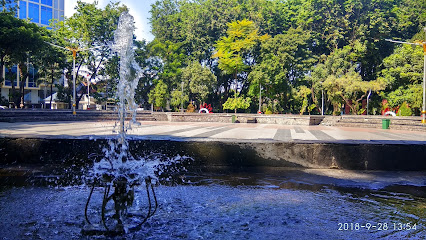
Suro and Boyo Statue
Discover the rich cultural heritage of Surabaya at the iconic Suro and Boyo Statue, a symbol of resilience and artistry in East Java.
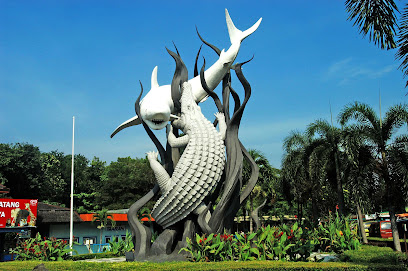
Monumen Perjuangan Polisi Republik Indonesia
Explore the Monumen Perjuangan Polisi Republik Indonesia, a stunning monument celebrating the bravery of Indonesian police, set in a peaceful park.
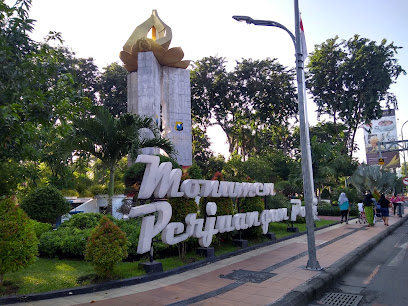
Taman Ronggolawe
Experience the tranquility and natural beauty of Taman Ronggolawe, a serene garden oasis in the heart of Surabaya, East Java.
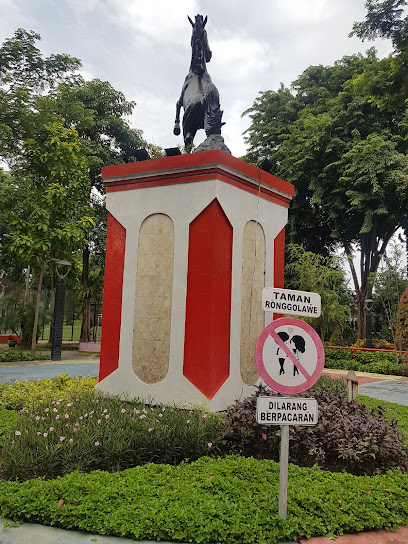
Pintu Air Jagir
Discover the historical charm of Pintu Air Jagir, Surabaya's iconic landmark showcasing rich cultural heritage and stunning architecture.
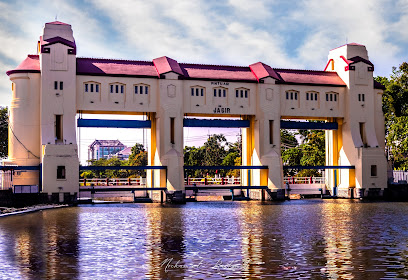
Taman Mayangkara
Discover the serene beauty of Taman Mayangkara, Surabaya's urban oasis, where lush gardens and tranquil landscapes await your exploration.
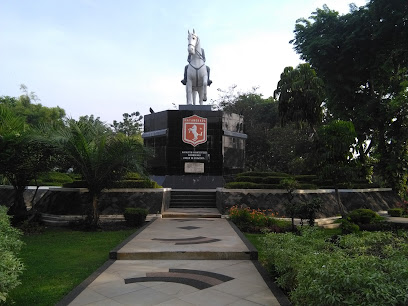
Wira Surya Agung Monument
Immerse yourself in history at the Wira Surya Agung Monument, a captivating symbol of bravery and heritage in Surabaya, East Java.
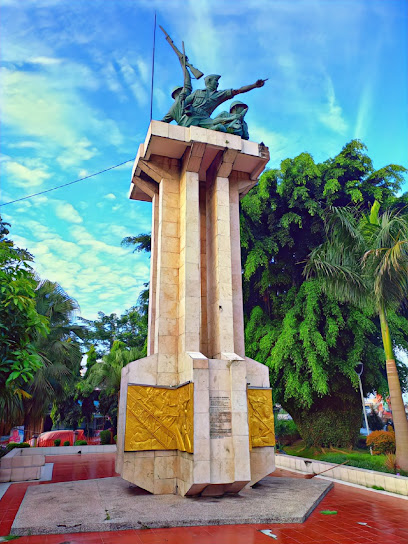
Oude Ned-indië Stuwbrug bij de Rivier de Djagir
Discover the serene beauty of Oude Ned-Indië Stuwbrug, a tranquil garden oasis in Surabaya, perfect for relaxation and nature appreciation.
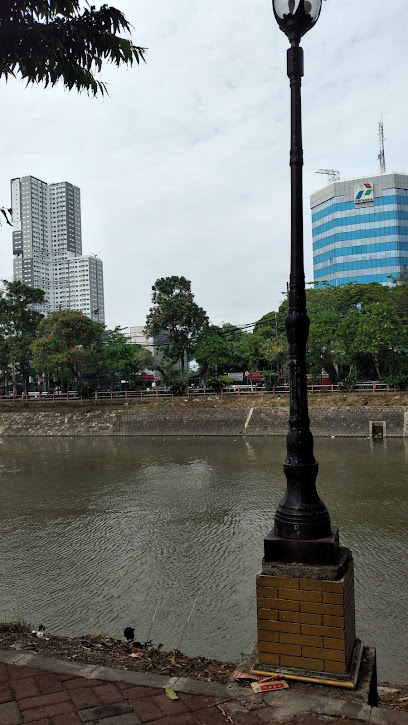
Cabang Perkumpulan Remaja
Explore the rich history and vibrant culture at Cabang Perkumpulan Remaja, a key landmark in Surabaya, East Java, perfect for history lovers and curious travelers.
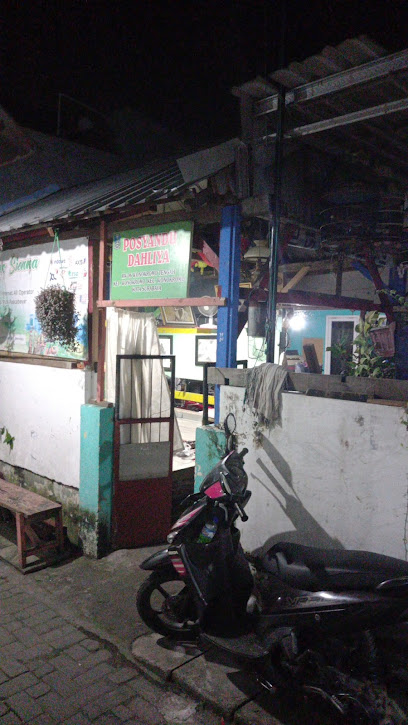
Eks PJL Percabangan Wonokromo
Explore Eks PJL Percabangan Wonokromo, a historical landmark in Surabaya, where the past meets the vibrant culture of East Java.
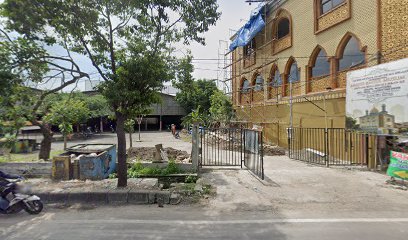
Unmissable attractions to see
Bungkul Park
Experience the tranquility and beauty of Bungkul Park, a lush green space in Surabaya perfect for relaxation and outdoor activities.
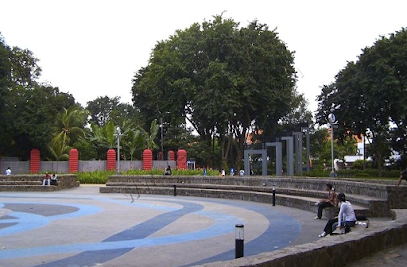
Surabaya Zoo
Explore Surabaya Zoo, a vibrant wildlife haven in East Java, offering unique experiences and a chance to connect with nature.
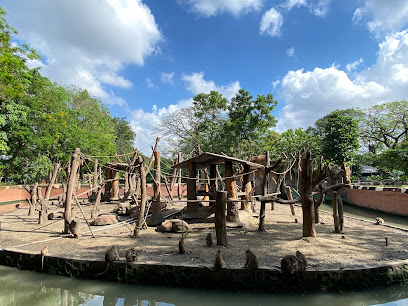
Monumen Tugu Pahlawan dan Museum Sepuluh Nopember Surabaya
Discover the rich history of Indonesia at Monumen Tugu Pahlawan and Museum Sepuluh Nopember, a tribute to the nation's heroes in Surabaya.
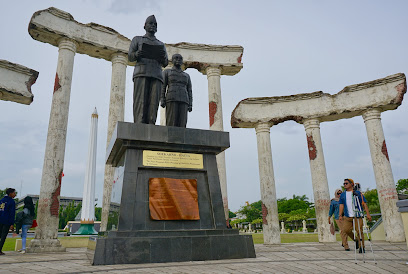
Alun - Alun Surabaya
Explore the enchanting Alun - Alun Surabaya, a cultural oasis with lush landscapes, local cuisine, and vibrant performances in the heart of East Java.
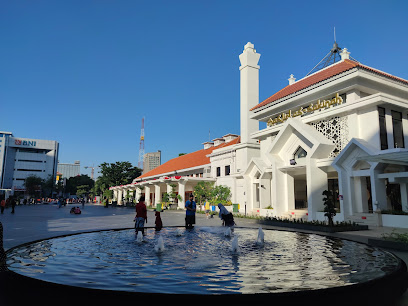
Suro and Boyo Statue
Explore the Suro and Boyo Statue in Surabaya, an iconic symbol of local culture and stunning artistry, perfect for every tourist's itinerary.
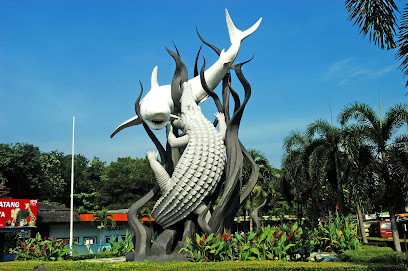
Monumen Bambu Runcing
Discover the Bambu Runcing Monument in Surabaya, a stunning tribute to Indonesia's heritage and a must-visit landmark for culture lovers.
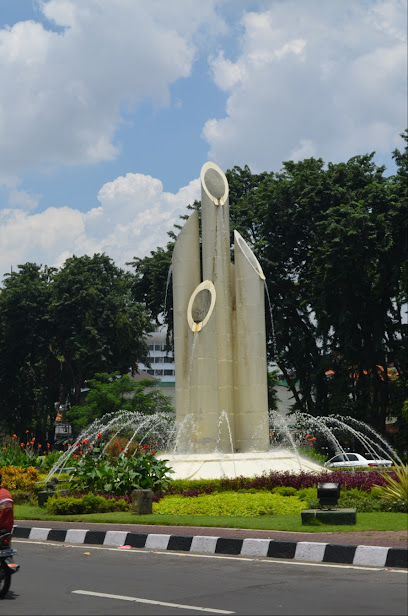
Korean Friendship Park
Experience the beauty and tranquility of Korean Friendship Park, a cultural treasure in Surabaya's vibrant landscape.
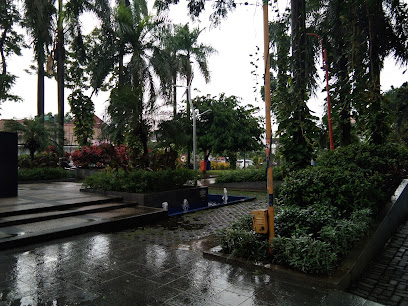
Arca Joko Dolog
Explore Arca Joko Dolog, a historical landmark in Surabaya, where rich culture meets serene beauty amidst the city's vibrant life.
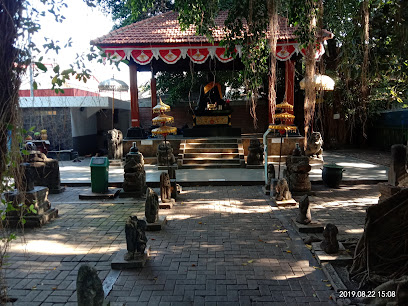
Monumen Perjuangan Polisi Republik Indonesia
Discover the Monumen Perjuangan Polisi Republik Indonesia, a majestic monument and serene park in Surabaya celebrating Indonesia's police bravery and rich history.
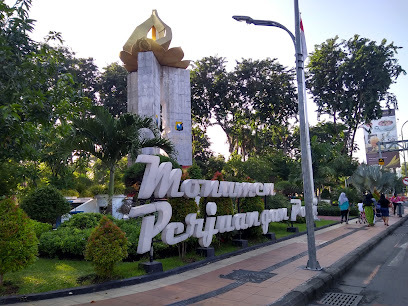
Taman Mayangkara
Discover the lush landscapes and tranquil paths of Taman Mayangkara, an urban oasis in Surabaya perfect for relaxation and exploration.
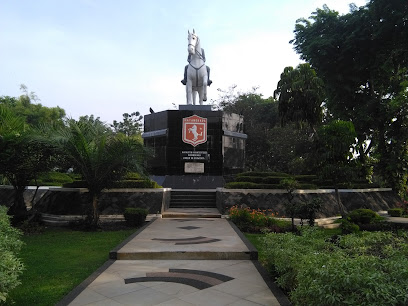
Essential places to dine
Fusia Restaurant - Rajanya Nasi Timbel
Experience the authentic flavors of Sundanese cuisine at Fusia Restaurant in Surabaya - where tradition meets taste.
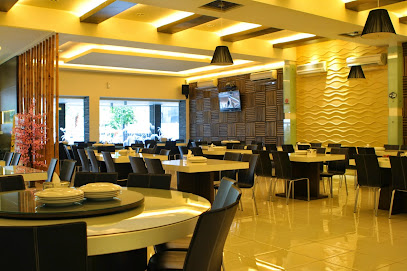
Restoran Bebek Tepi Sawah Surabaya
Savor authentic Balinese cuisine in a serene setting at Restoran Bebek Tepi Sawah Surabaya - where every meal is a delightful escape.
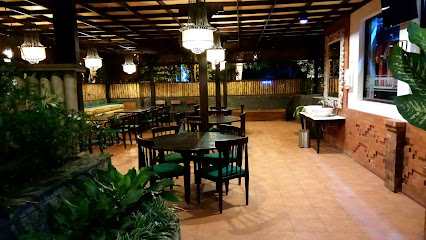
The Consulate
Experience exquisite dining at The Consulate in Surabaya—where Japanese elegance meets Western sophistication.
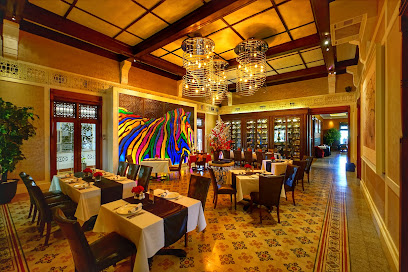
ONNI House Surabaya
Experience the best of Asian fusion cuisine at ONNI House Surabaya - where dining meets delightful floral arrangements and unique home goods.
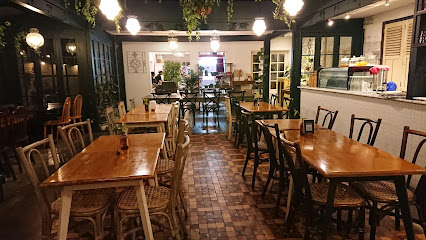
Cafe Omah Sae
Experience the authentic flavors of Javanese and Chinese cuisine at Cafe Omah Sae in Surabaya - a culinary gem in East Java.
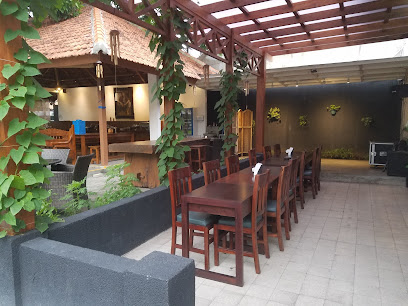
Hari Hari Restaurant
Savor authentic Indonesian flavors at Hari Hari Restaurant in Surabaya – where every dish tells a story.
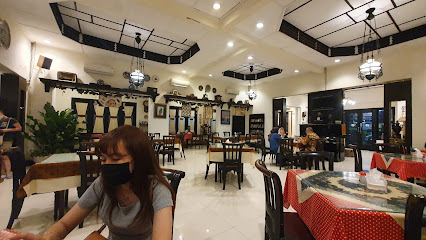
Arunaya Resto
Experience the rich flavors of Indonesian and Asian cuisine at Arunaya Resto in Surabaya—where every meal is a celebration.
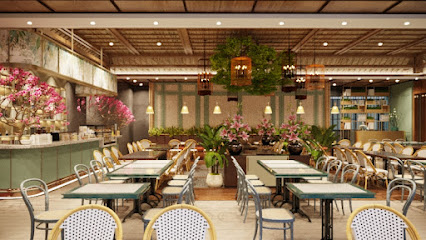
Restoran Citrus Lee
Experience exquisite modern French cuisine at Restoran Citrus Lee in Surabaya - where every dish tells a story.
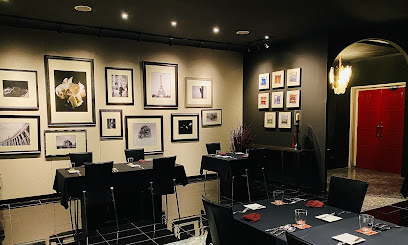
DEPOT POJOK
Experience authentic Chinese cuisine at Depot Pojok in Surabaya - a culinary haven featuring delectable chicken specialties.
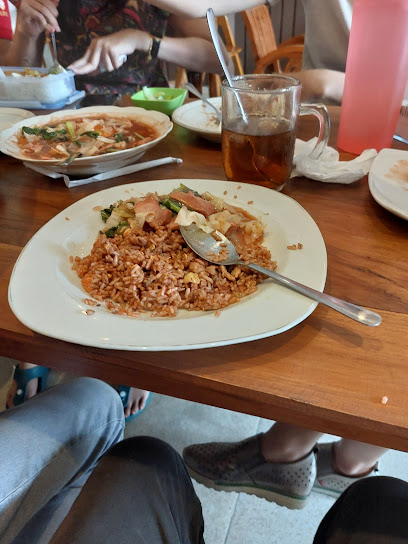
Quali
Discover authentic Chinese flavors at Quali in Surabaya - where family dining meets culinary excellence.

Markets, malls and hidden boutiques
Darmo Trade Center
Discover Darmo Trade Center in Surabaya, a vibrant shopping hub blending local culture with modern retail experiences.
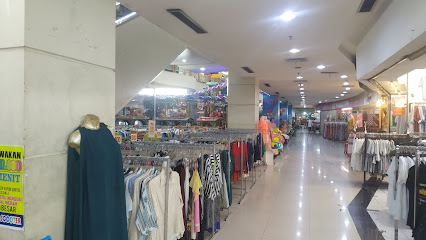
Yegktio_Store
Explore the stylish Yegktio Store in Surabaya for the latest in men's fashion and exquisite perfumes, all in one trendy location.
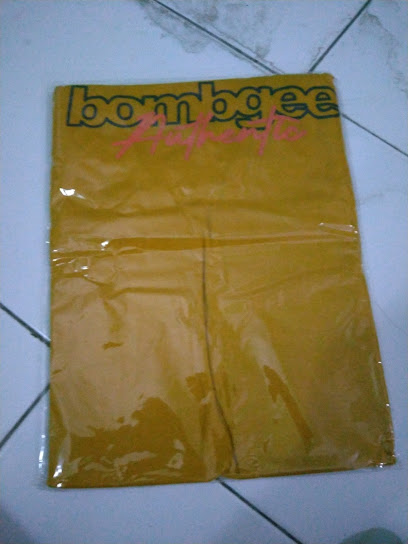
OWEL SHOP
Explore OWEL SHOP in Surabaya for a delightful mix of children's toys, stylish footwear, and seasonal treasures perfect for all ages.
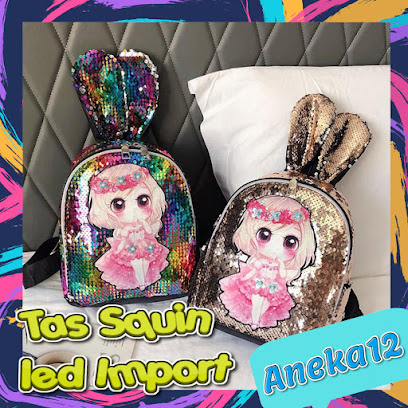
Toko Handayani 1
Discover local snacks and essentials at Toko Handayani 1, your convenient stop in Surabaya, East Java, blending culture with convenience.

Toko Yusro
Explore Toko Yusro, Surabaya's vibrant clothing store, where traditional elegance meets contemporary fashion in a shopping haven.
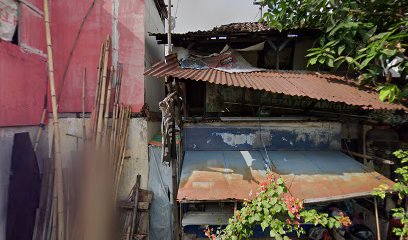
Toko Simonangkir
Discover unique fashion finds at Toko Simonangkir, Surabaya's stylish clothing store in Darmo Trade Center.

Toko Santo
Discover Toko Santo, your go-to convenience store in Surabaya for local snacks, beverages, and essentials while exploring East Java.

Unique
Explore the vibrant gift shop at Mall Darmo Trade Center in Surabaya for the perfect local souvenirs and unique handcrafted treasures.

Toko Biru
Explore the vibrant offerings of Toko Biru, your essential convenience store in Surabaya for local snacks and everyday essentials.

Naomi
Discover unique fashion at Naomi, a stylish boutique in Surabaya, blending modern trends with local Indonesian flair for an unforgettable shopping experience.

Essential bars & hidden hideouts
Old Wood Bistro
Discover the vibrant fusion of live music and exquisite dining at Old Wood Bistro in Surabaya, the ultimate destination for food and entertainment lovers.
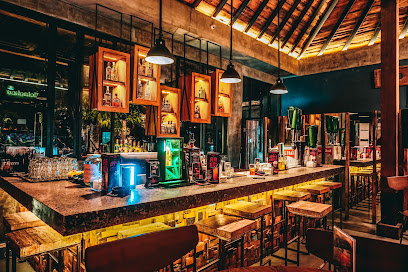
NEON by Brassery
Discover Surabaya's vibrant nightlife at NEON by Brassery, a bar and nightclub that promises unforgettable moments and a lively atmosphere.
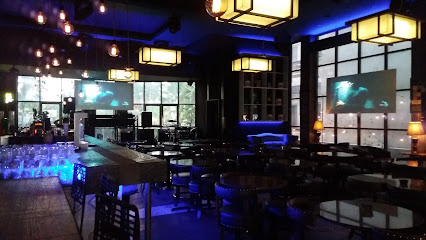
Lobby Lounge at Shangri-La Hotel, Surabaya
Experience luxury and relaxation at the Lobby Lounge in Shangri-La Hotel, Surabaya, where exquisite tastes meet elegant surroundings.
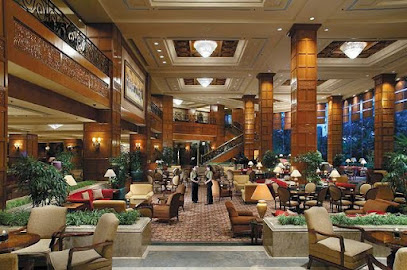
COLORS PUB & RESTAURANT
Discover the lively ambiance of COLORS PUB & RESTAURANT in Surabaya, where great food, drinks, and live music combine for an unforgettable night out.
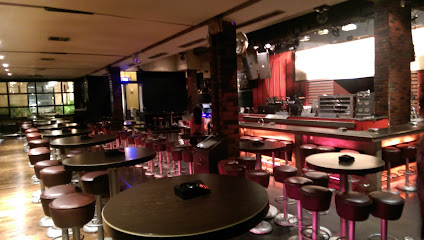
HOPS Kitchen & Bar
Experience Surabaya's vibrant culinary scene at HOPS Kitchen & Bar, offering delicious dishes and a diverse selection of local and international beers.
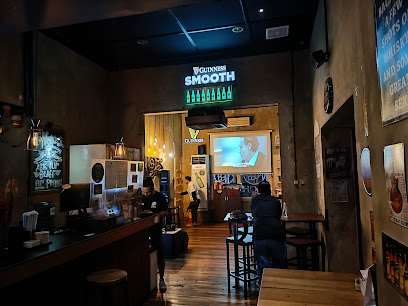
The Avenue Lounge Bar
Discover the tranquility of The Avenue Lounge Bar, where exquisite cocktails and a serene atmosphere await in the heart of Surabaya.
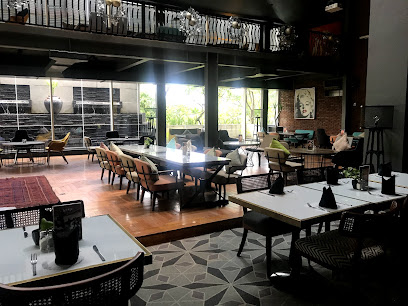
Lido Pub & Restaurant
Discover the best of Irish and Italian cuisine at Lido Pub & Restaurant, a cozy getaway in Surabaya's vibrant dining scene.
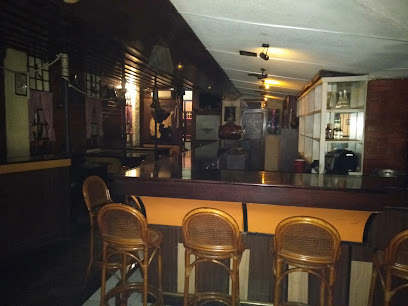
WotsUp Jungle
Experience the vibrant tropical vibes of WotsUp Jungle, the ultimate bar and lounge for relaxation and fun in Surabaya.
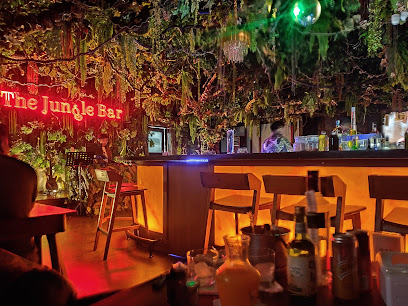
Level Up Sky Lounge
Experience the breathtaking views and vibrant atmosphere at Level Up Sky Lounge, the perfect retreat for relaxation and socialization in Surabaya.
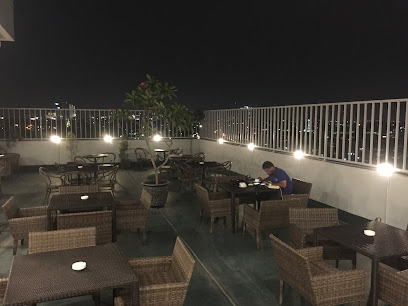
1Deck Gastropub
Experience the vibrant culinary scene at 1Deck Gastropub in Surabaya, where modern dining meets lively ambiance and exceptional service.
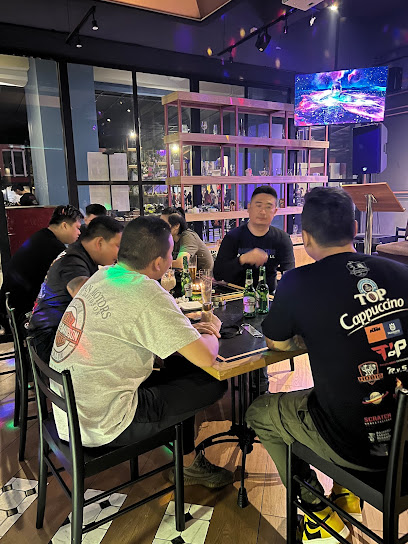
Local Phrases
-
- HelloHalo
[ha-loh] - GoodbyeSelamat tinggal
[seh-lah-maht ting-gahl] - YesYa
[yah] - NoTidak
[tee-dahk] - Please/You're welcomeSilakan
[see-lah-kahn] - Thank youTerima kasih
[tuh-ree-mah kah-see] - Excuse me/SorryMaaf
[mah-ahf] - How are you?Apa kabar?
[ah-pah kah-bahr] - Fine. And you?Baik. Bagaimana denganmu?
[bah-eek. bah-gai-mah-nah dehng-ahn-moo] - Do you speak English?Apakah kamu bisa berbahasa Inggris?
[ah-pah-kah kah-moo bee-sah buhr-bah-hah-sah eeng-grees] - I don't understandSaya tidak mengerti
[sah-yah tee-dahk mehng-gehr-tee]
- HelloHalo
-
- I'd like to see the menu, pleaseSaya ingin melihat menu, tolong
[sah-yah een-geen meh-lee-haht meh-noo toh-lohng] - I don't eat meatSaya tidak makan daging
[sah-yah tee-dahk mah-kahn dah-yahng] - Cheers!Selamat minum!
[seh-lah-maht mee-noom] - I would like to pay, pleaseSaya ingin membayar, tolong
[sah-yah een-geen mehm-bah-yahr toh-lohng]
- I'd like to see the menu, pleaseSaya ingin melihat menu, tolong
-
- Help!Tolong!
[toh-lohng] - Go away!Pergi!
[pehr-gee] - Call the Police!Panggil polisi!
[pahng-geel poh-lee-see] - Call a doctor!Panggil dokter!
[pahng-geel dohk-tehr] - I'm lostSaya tersesat
[sah-yah tuhr-seh-saht] - I'm illSaya sakit
[sah-yah sah-keet]
- Help!Tolong!
-
- I'd like to buy...Saya ingin membeli...
[sah-yah een-geen mehm-beh-lee] - I'm just lookingSaya hanya melihat-lihat
[sah-yah hahn-yah meh-lee-haht-lee-haht] - How much is it?Berapa harganya?
[beh-rah-pah hahr-gahn-yah] - That's too expensiveItu terlalu mahal
[ee-too tuhr-lah-loo mah-hahl] - Can you lower the price?Bisa kurangi harganya?
[bee-sah koo-rang-gee hahr-gahn-yah]
- I'd like to buy...Saya ingin membeli...
-
- What time is it?Jam berapa sekarang?
[jahm beh-rah-pah seh-kah-rahng] - It's one o'clockSekarang pukul satu
[seh-kah-rahng poo-kool sah-too] - Half past (10)Setengah (sepuluh)
[seh-tehn-gah (seh-poo-looh)] - MorningPagi
[pah-gee] - AfternoonSore
[soh-reh] - EveningMalam
[mah-lahm] - YesterdayKemarin
[keh-mah-reen] - TodayHari ini
[hah-ree ee-nee] - TomorrowBesok
[beh-sohk] - 1Satu
[sah-too] - 2Dua
[doo-ah] - 3Tiga
[tee-gah] - 4Empat
[em-paht] - 5Lima
[lee-mah] - 6Enam
[eh-nahm] - 7Tujuh
[too-joo] - 8Delapan
[deh-lah-pahn] - 9Sembilan
[sehm-bee-lahn] - 10Sepuluh
[seh-poo-looh]
- What time is it?Jam berapa sekarang?
-
- Where's a/the...?Dimana ada/...?
[dee-mah-nah ah-dah/...?] - What's the address?Berapa alamatnya?
[beh-rah-pah ah-lah-maht-nyah] - Can you show me (on the map)?Bisa tunjukkan pada saya (di peta)?
[bee-sah toon-jook-kahn pah-dah sah-yah (dee peh-tah)?] - When's the next (bus)?Kapan yang berikutnya (bus)?
[kah-pahn yahng beh-ree-koot-nyah (boos)?] - A ticket (to ....)Tiket (ke ....)
[tee-keht (keh ....)]
- Where's a/the...?Dimana ada/...?
History of Wonokromo
-
Wonokromo's history is tightly intertwined with the colonial era, particularly during the Dutch East Indies period. Established in the late 19th century, it became a significant area for the burgeoning trade activities in Surabaya, which was a pivotal port city for the Dutch. The neighborhood's layout and infrastructure were influenced by colonial urban planning, with many buildings reflecting Dutch architectural styles.
-
During the Indonesian National Revolution (1945-1949), Wonokromo played an important role as a center for resistance against colonial rule. Many local leaders emerged from the area, and it became a hub for political organization and activism, reflecting the broader struggle for independence that was sweeping across Surabaya and Indonesia as a whole.
-
Wonokromo is known for its rich cultural diversity, featuring a mix of Javanese, Chinese, and Arab influences. This cultural blend is evident in the local cuisine, festivals, and daily life. Traditional markets, such as Pasar Wonokromo, serve as vibrant centers of commerce and social interaction, showcasing the neighborhood's unique cultural tapestry.
-
In recent decades, Wonokromo has experienced significant urbanization and development. The area has seen an influx of new businesses, residential complexes, and improved infrastructure. This transformation reflects the broader economic growth of Surabaya as Indonesia's second-largest city, while still preserving elements of its historical charm.
-
The neighborhood has also become a focal point for community art initiatives, with local artists and organizations promoting cultural activities and workshops. This resurgence of interest in the arts is part of a larger movement within Surabaya to celebrate and preserve local heritage, making Wonokromo a vibrant hub for creativity.
Wonokromo Essentials
-
Wonokromo is well-connected to other neighborhoods in Surabaya. The main access point is via the Surabaya Gubeng Train Station, which is nearby. From the airport, you can take a taxi or ride-hailing service directly to Wonokromo, which takes about 30-45 minutes. Alternatively, public buses and angkots (minivans) are available from various neighborhoods, with routes that lead to Wonokromo.
-
Getting around Wonokromo is convenient with several modes of transportation. The area is served by public buses and angkots, which are an affordable way to navigate the neighborhood. For a more personalized experience, consider renting a bicycle to explore local sights at your own pace. Taxis and ride-hailing services are also readily available for longer distances or late-night travel.
-
Wonokromo is generally safe for tourists, but it's advisable to remain vigilant, especially in crowded areas. Avoid walking alone at night in less populated streets. Areas around the markets can sometimes attract petty crime, so keep an eye on your belongings. Always be cautious and use reputable transportation services.
-
In case of emergencies, dial 112 for police assistance or 118 for medical emergencies in Indonesia. Familiarize yourself with the location of the nearest hospitals, such as RSUD Dr. Soetomo. It's also wise to have travel insurance that covers medical emergencies. In case of any legal issues, contact your embassy or consulate for guidance.
-
Fashion: Do dress modestly, especially when visiting spiritual sites. Avoid overly revealing clothing. Religion: Do respect local customs and traditions, including dressing appropriately in religious places. Public Transport: Do be polite and offer your seat to the elderly. Don't eat or drink on public transport. Greetings: Do greet locals with a smile and a nod. Avoid overly familiar gestures unless invited. Eating & Drinking: Do try local street food and accept hospitality. Don’t refuse food or drink offered, as it may be seen as impolite.
-
To experience Wonokromo like a local, visit the traditional markets for fresh produce and local snacks. Engage with street vendors, as they often share interesting stories about their goods. Try to learn a few basic Indonesian phrases; locals appreciate the effort. Additionally, explore nearby parks and community spaces where you can observe daily life and interact with residents.
Nearby Cities to Wonokromo
-
Things To Do in Semarang
-
Things To Do in Yogyakarta
-
Things To Do in Bali
-
Things To Do in Bandung
-
Things To Do in Jakarta
-
Things To Do in Makassar
-
Things To Do in Balikpapan
-
Things To Do in Settlement
-
Things To Do in Poon Saan
-
Things To Do in Flying Fish Cove
-
Things To Do in Drumsite
-
Things To Do in Greta Beach
-
Things To Do in Kuching
-
Things To Do in Miri
-
Things To Do in Kuala Belait






